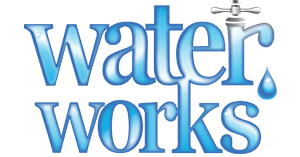Enhancing Water Quality in Colorado Homes through Reverse Osmosis Filtration Systems
This case study explores the implementation and effectiveness of reverse osmosis (RO) water filtration systems in improving water quality in Colorado homes. With the unique challenges presented by Colorado’s water sources, including high mineral content, potential contaminants, and hardness, reverse osmosis technology provides an efficient and reliable solution. The case study aims to demonstrate how RO filtration systems can address these issues and ensure safe, clean, and great-tasting water for Colorado residents.
Background:
Colorado is known for its diverse water sources, including groundwater, rivers, and reservoirs. However, these sources often contain high levels of dissolved minerals, such as calcium, magnesium, and iron, which contribute to hard water.
Additionally, contaminants like nitrates, pesticides, and heavy metals can pose health risks. The existing water treatment systems in many Colorado homes, such as basic sediment filters or activated carbon filters, may not effectively address these specific challenges.
Problem Identification:
To overcome the water quality issues prevalent in Colorado homes, the focus shifted towards implementing comprehensive solutions that could improve the taste, odor, and overall quality of drinking water. Reverse osmosis water filtration systems were identified as a viable option due to their ability to remove dissolved minerals, contaminants, and impurities.
Implementation Strategy:
Water Testing and Analysis: Before proceeding with the implementation of reverse osmosis filtration systems, a thorough water testing and analysis was conducted in various Colorado homes. This process involved assessing the quality of the source water, identifying specific contaminants, measuring hardness levels, and determining the overall water composition.
Customized System Design: Based on the water analysis results, customized reverse osmosis filtration systems were designed for each home. These systems were tailored to address the specific water quality concerns, including high mineral content, contaminants, and hardness. Factors such as water demand, available space, and installation requirements were also considered during the design phase.
Professional Installation: The reverse osmosis filtration systems were installed by certified professionals with expertise in water treatment. This ensured proper system placement, connection to the existing water supply, and compliance with local plumbing codes and regulations. The installation process also involved integrating additional components like pre-filters, post-filters, and storage tanks, as necessary.
Community Education: Colorado residents were provided with comprehensive educational resources on the benefits and functioning of reverse osmosis filtration systems. Workshops, seminars, and informative materials were made available to help homeowners understand the advantages of RO technology, the maintenance requirements, and how to maximize the benefits of the system.
Ongoing Maintenance and Support: Homeowners were educated on the importance of regular maintenance for optimal system performance. A maintenance schedule was established, outlining filter replacement, sanitization procedures, and system check-ups. Additionally, homeowners were provided with support channels to address any questions or concerns related to their reverse osmosis filtration systems.
Results and Benefits:
Improved Water Quality: The implementation of reverse osmosis filtration systems resulted in a significant improvement in water quality in Colorado homes. The RO systems effectively removed dissolved minerals, contaminants, and impurities, resulting in clear, odorless, and great-tasting water. The reduction in hardness levels also prevented mineral buildup in plumbing fixtures, appliances, and water-using equipment.
Health and Safety: Colorado residents experienced enhanced health and safety benefits through the removal of potential contaminants, such as nitrates, pesticides, and heavy metals, from their drinking water. The RO systems provided an additional layer of protection against harmful substances, ensuring the water was safe for consumption.
Economic Savings: Reverse osmosis filtration systems offered economic benefits to homeowners. By eliminating the need for bottled water or expensive water softening solutions, residents saved money in the long run. Additionally, the reduction in mineral buildup in pipes and appliances led to increased longevity and efficiency, resulting in potential cost savings on repairs and replacements.
Environmental Impact: The adoption of reverse osmosis filtration systems contributed to environmental sustainability. By reducing reliance on bottled water, households minimized plastic waste generation. Moreover, the improved water quality reduced the need for chemical cleaners, which positively impacted the environment.
Conclusion:
This case study highlights the successful implementation of reverse osmosis filtration systems in Colorado homes. By utilizing this advanced technology, homeowners were able to overcome the challenges associated with hard water, high mineral content, and potential contaminants. The RO systems provided safe, clean, and great-tasting water, leading to improved health, economic savings, and environmental sustainability for Colorado residents.
